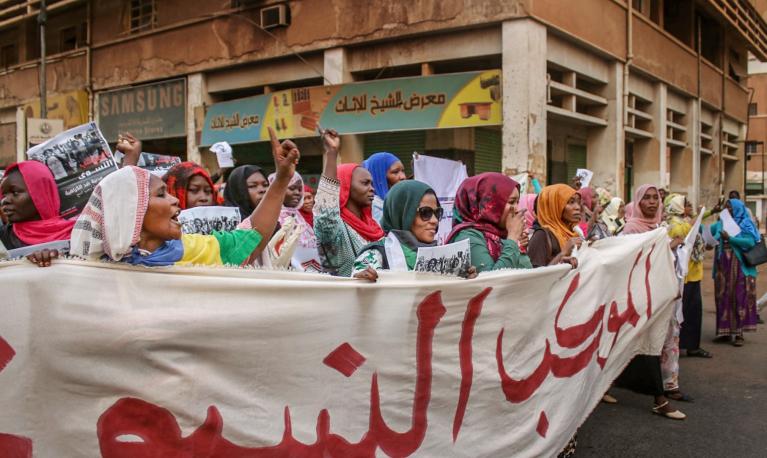- Briefing paper
- 23 Abril 2024
Feminist responses to ‘norm-spoiling’ at the United Nations
- Author: Rebecca Holmes
- Published by: ODI Global
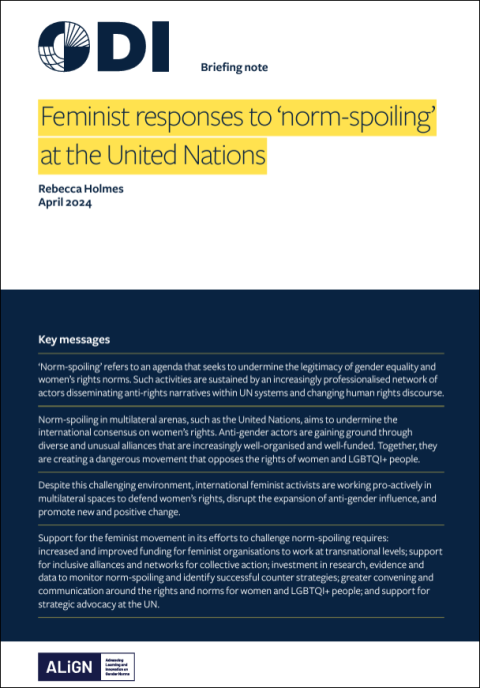
Threats to progress on gender equality, LGBTQI+ diversity and women’s rights are gaining traction. Across the world and in global, national and local spaces, anti-rights actors are working collectively to undermine and restrict the rights of women and LGBTQI+ people.
‘Norm-spoiling’ refers to an agenda that seeks to undermine the legitimacy of gender equality and women’s rights norms. Such activities are sustained by an increasingly professionalised network of actors disseminating anti-rights narratives within UN systems and working to change human rights discourse.
This ODI Briefing note explores the what, who and how of 'norm-spoiling', as well as the successful counter-strategies being employed by feminist organisations to resist these efforts. It outlines what is known about the well-coordinated tactics eroding rights-based norms at the international level, and what can be done protect women's and LGBTQ+ rights, which have been hard-won through decades of feminist organising.
Key messages
- Norm-spoiling in multilateral arenas, such as the United Nations, aims to undermine the international consensus on women’s rights.
- Anti-gender actors are gaining ground through diverse and unusual alliances that are increasingly well-organised and well-funded. Together, they are creating a dangerous movement that opposes the rights of women and LGBTQI+ people.
- Despite this challenging environment, international feminist activists are working pro-actively in multilateral spaces to defend women’s rights, disrupt the expansion of anti-gender influence, and promote new and positive change.
- To support these efforts, recommendations include: communicating and raising awareness of norm-spoiling; increasing and improving funding to feminist organisations; bolstering evidence and data on anti-rights strategies and what works to counteract them; supporting coalition building and inclusive transnational alliances; strategically strengthening advocacy and coordination of lobbying efforts at the UN.
Related resources
Report
12 Febrero 2026
Published by: ODI Global
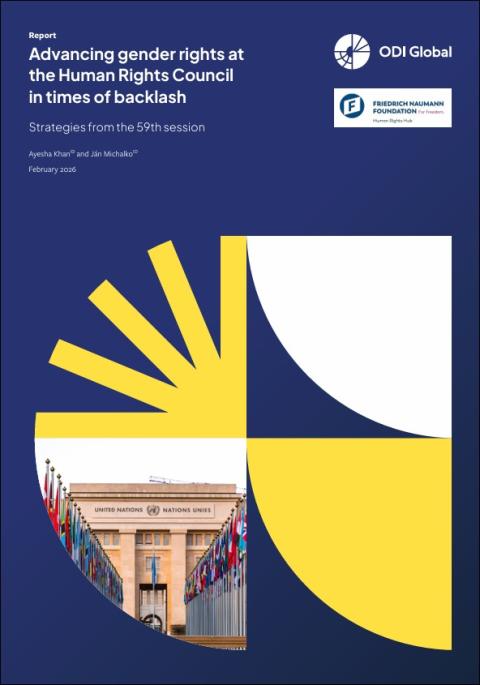
Blog
12 Enero 2026
Published by: ODI Global
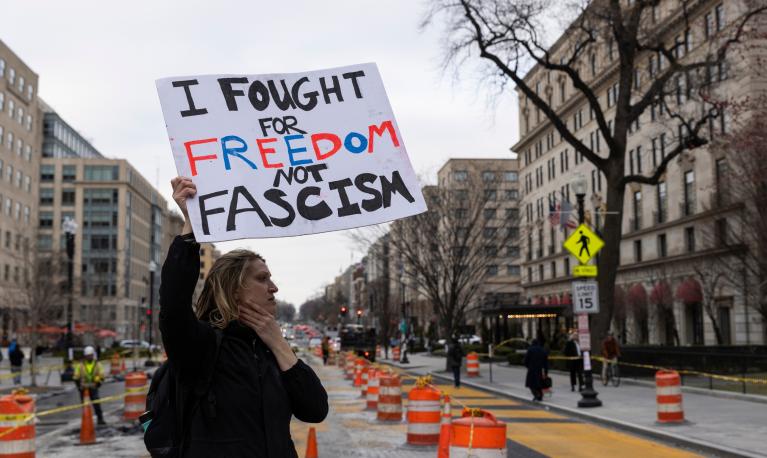
Blog
5 Enero 2026
Published by: ALIGN
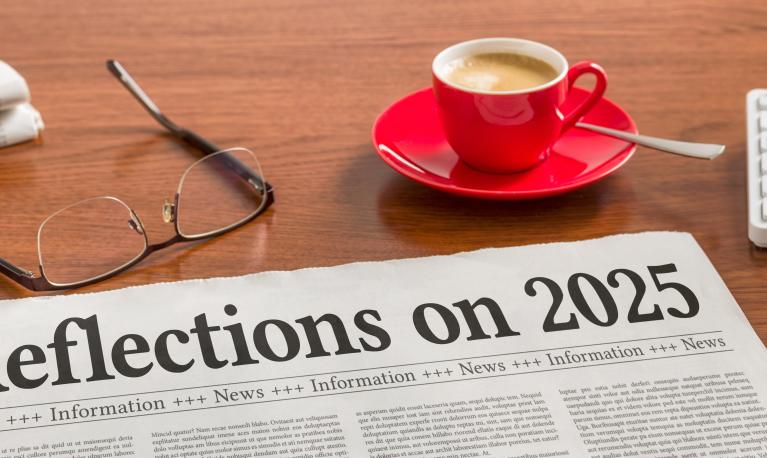
Policy paper
24 Noviembre 2025
Published by: ODI Global
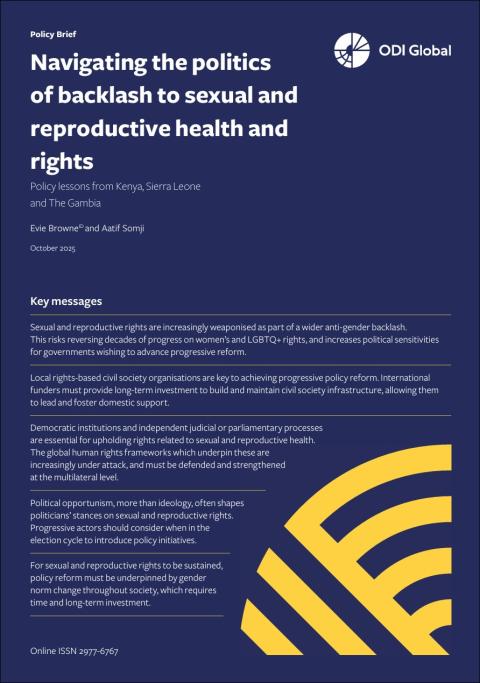
Briefing paper
24 Noviembre 2025
Published by: ODI Global, ALIGN
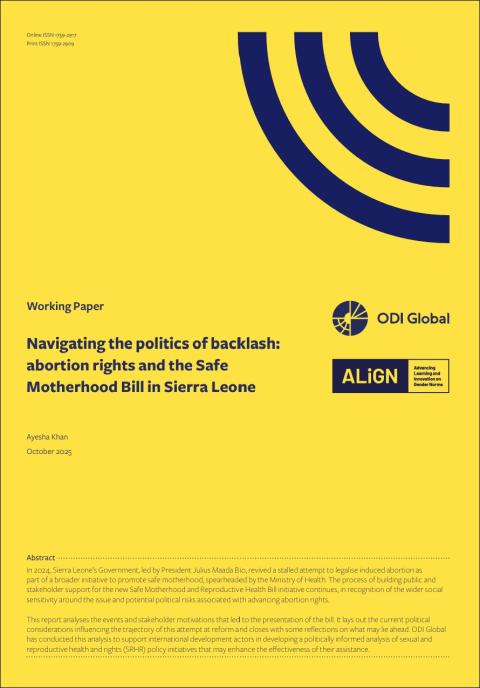
Briefing paper
5 Noviembre 2025
Published by: ODI Global, ALIGN
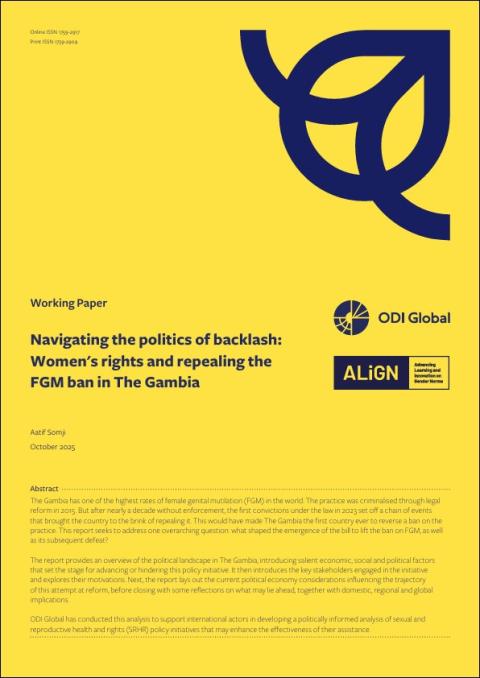
Briefing paper
5 Noviembre 2025
Published by: ODI Global, ALIGN
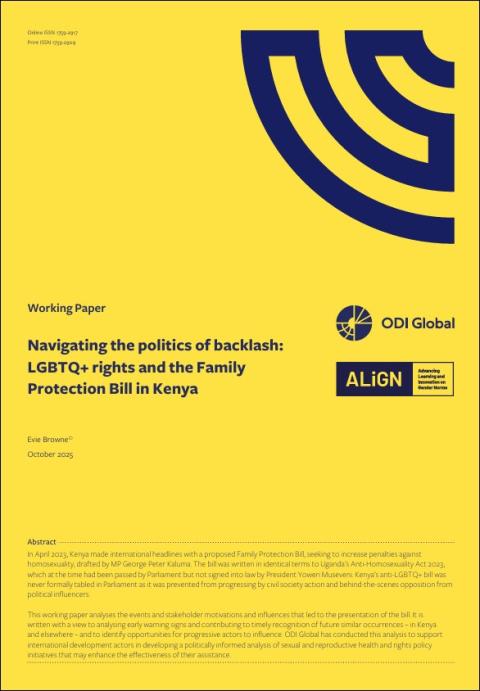
Report
6 Octubre 2025
Published by: ODI Global
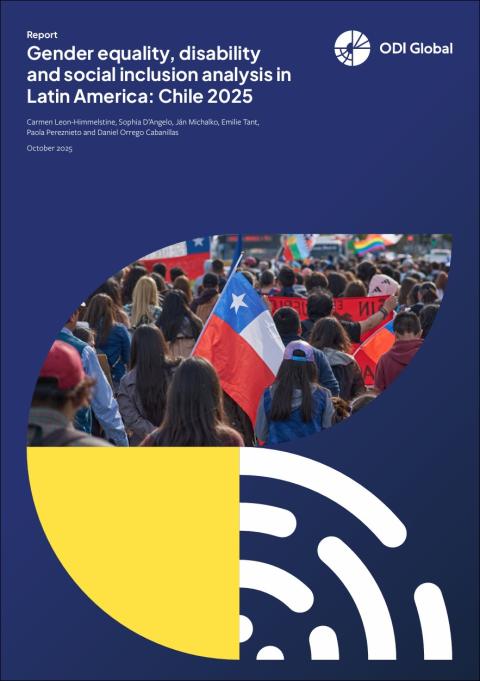
Briefing paper
8 Abril 2025
Published by: European Politics and Institutions Programme
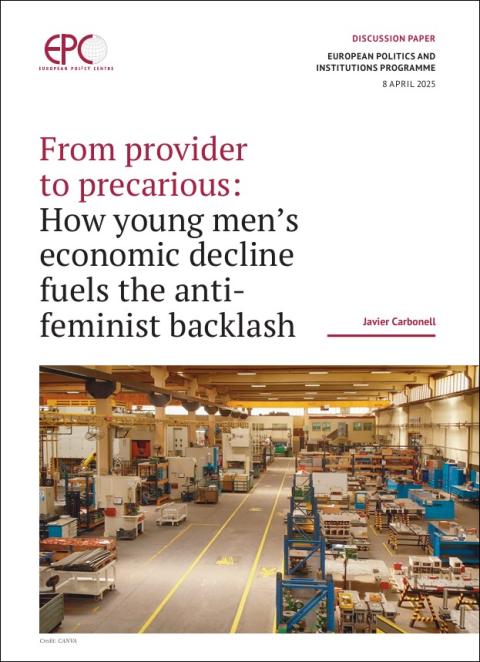
Report
14 Abril 2025
Published by: ALIGN, IfD
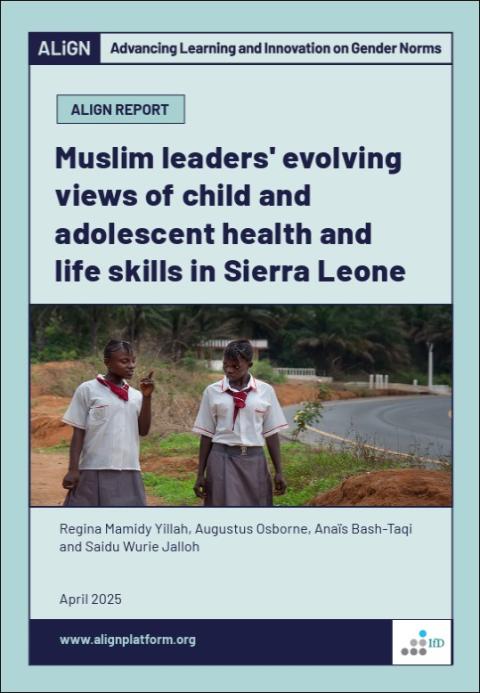
Report
26 Marzo 2025
Published by: ALIGN, Aahung
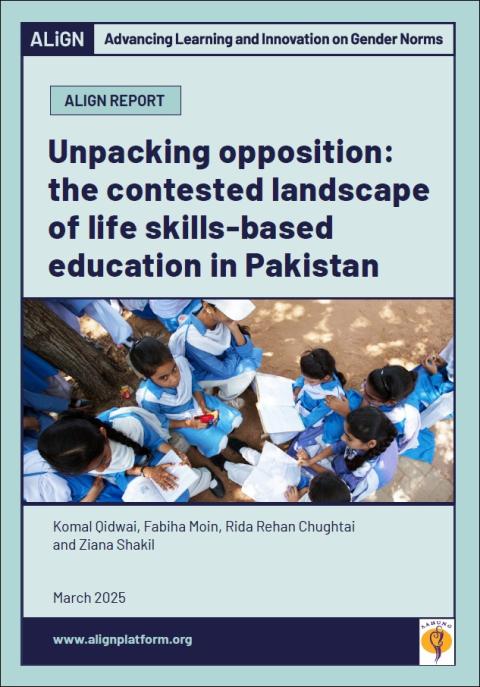
Report
12 Febrero 2025
Published by: ODI Global
